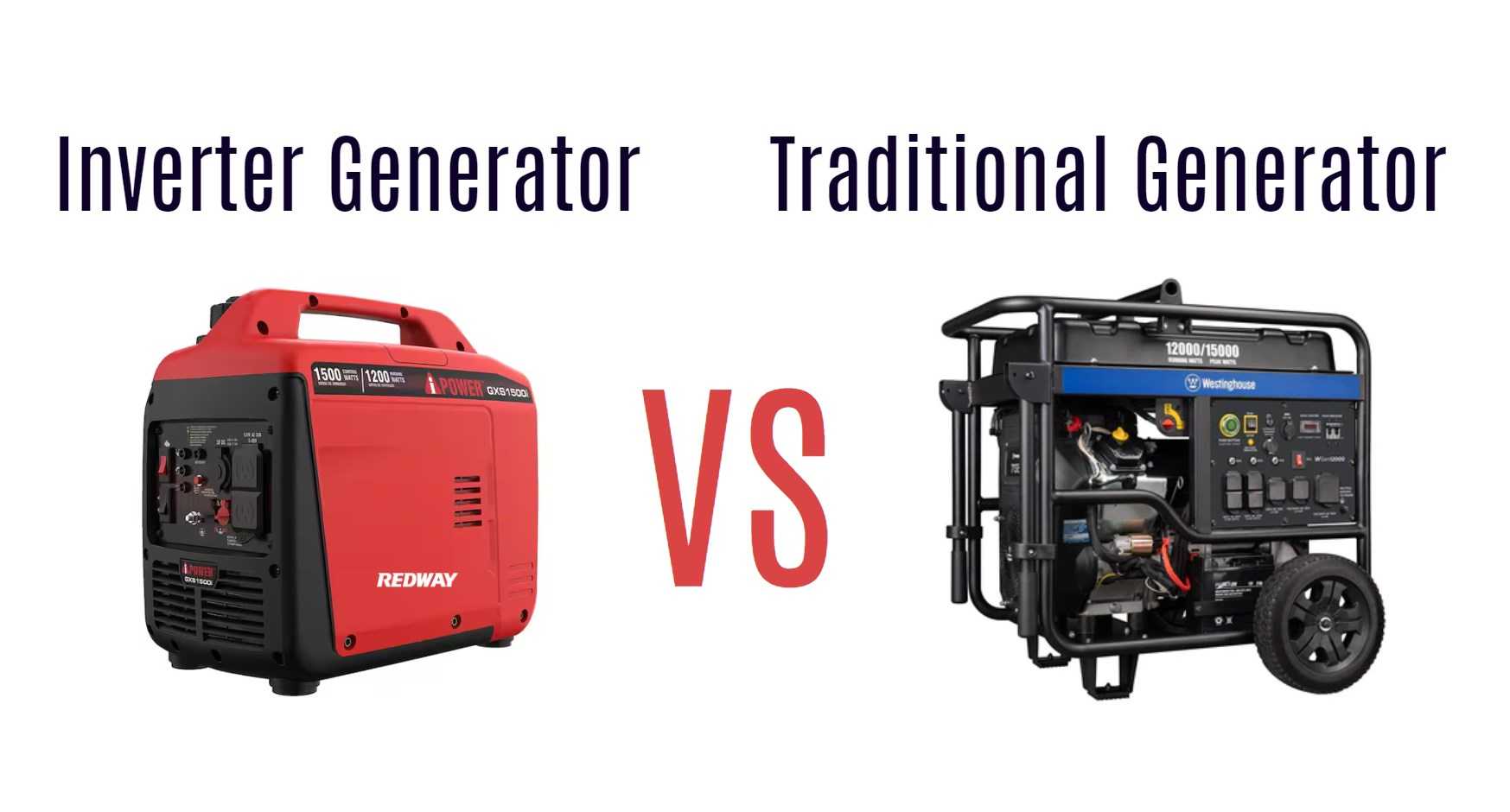When deciding between an inverter generator and a traditional generator, consider the following: Inverter generators are more efficient, quieter, and provide cleaner power, making them ideal for sensitive electronics. Traditional generators, however, offer higher power output and are typically less expensive. Choose based on your specific needs—whether it’s portability or power capacity.
Understanding the Basics of Generators
Generators serve as essential power sources during outages or in remote locations. They convert mechanical energy into electrical energy, providing a reliable backup when needed. The choice between an inverter generator and a traditional generator hinges on several factors including power output, fuel efficiency, and noise levels.
Inverter Generators: Pros and Cons
Pros:
- Efficiency: Inverter generators adjust their engine speed based on the load, leading to better fuel efficiency.
- Portability: Generally lighter and more compact, making them easy to transport.
- Noise Level: Operate much quieter than traditional generators, often below 60 decibels.
- Clean Power: Produce stable voltage, making them safe for sensitive electronics.
Cons:
- Cost: Typically more expensive upfront compared to traditional generators.
- Power Output: May not provide enough power for heavy-duty applications.
Traditional Generators: Pros and Cons
Pros:
- Power Capacity: Often deliver higher wattage, suitable for powering larger appliances.
- Cost-Effective: Generally less expensive than inverter models.
Cons:
- Noise Level: Can be quite loud, often exceeding 70 decibels.
- Fuel Efficiency: Less efficient as they run at a constant speed regardless of load.
Key Differences Between Inverter and Traditional Generators
| Feature | Inverter Generator | Traditional Generator |
|---|---|---|
| Fuel Efficiency | High | Moderate to Low |
| Noise Level | Low (quiet operation) | High (loud operation) |
| Power Output | Lower (ideal for small loads) | Higher (suitable for heavy loads) |
| Portability | Very portable | Bulky |
| Cost | Higher upfront cost | Lower upfront cost |
Latest News
Recent developments in generator technology have highlighted the growing popularity of inverter generators due to their eco-friendly features. Major manufacturers are now focusing on enhancing fuel efficiency and reducing noise levels. Additionally, advancements in battery technology are leading to hybrid models that combine inverter technology with solar power capabilities. This trend reflects a broader shift towards sustainable energy solutions in the generator market.
Redway Expert Comment
In our experience at Redway Battery, the choice between an inverter generator and a traditional generator ultimately depends on the user’s specific needs. For those prioritizing portability and quiet operation—especially in recreational settings—an inverter generator is the best choice. However, if high power output is essential for construction sites or large appliances, a traditional generator remains unmatched. As technology advances, we anticipate even more innovative solutions that will cater to both markets.”
Conclusion
Choosing between an inverter generator and a traditional generator requires careful consideration of your unique requirements. Whether you prioritize portability, noise level, or power capacity will guide your decision. As the market evolves with technological advancements, staying informed will help you make the best choice for your energy needs.




